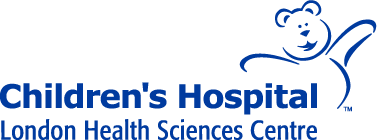Your child's safety is our top priority.
At our hospital, we’re committed to creating a safe environment by working together with patients and families. From proper patient identification to preventing falls and infections, every part of your child's care includes steps to keep them safe.
Below, you’ll find information and resources to help you stay informed, speak up, and take an active role in the care of you or your child.
Patient Identification
To help keep your child safe, they will need to wear an armband during their hospital stay. This band helps staff make sure the right care and medications are given. It includes your child’s name, date of birth, hospital ID number, and a barcode. Staff will check it before giving medications, doing tests, or taking your child for a procedure.
Babies under one year will also wear a small security alarm band while they are admitted, to help keep them safe.
If your child has allergies, they will be given a red allergy bracelet so everyone on the care team is aware.
You may be asked to confirm your child’s name or birthday often — this is one of the ways we help make sure care is safe. If anything seems wrong, please speak up. We are committed to providing your child with safe, high quality care and confirming their identity is an important part of that promise.
Falls Prevention
Your child may be at risk of having a fall while in the hospital and to prevent this, your child’s nurse will do an assessment and discuss fall prevention with you. Some things you can do include:
- Putting up all the crib or bed rails prior to moving away from your child’s bed
- Having your child wear slip proof socks/shoes/slippers
- Reminding your child to ask for help before getting up
Non-essential items
Clutter can prevent staff from thoroughly cleaning your child’s room. It can also present a trip and fall hazard for staff, visitors and yourself. While we want your child to have what they need to feel comfortable, excessive personal items may be sent home with visitors.
Taking Care of Yourself and Your Family
Children’s Hospital acknowledges the importance of providing care and support not only to the patient, but to their family and caregivers. All family members are impacted by the hospitalization of a child.
Some tips from other families on how to manage this stress include:
- Make a list of specific things family and friends can do to help at home and in the hospital.
- Ask relatives and friends to space their visits so they can provide relief for you.
- Eat well, drink plenty of water, and avoid consuming a lot of caffeinated beverages. If you are not hungry for full meals, have several small portions throughout the day.
- There are professional staff members who can provide support and offer comfort as you cope with your child’s illness or injury. Let us know if you would like to talk with a health-care provider.
- A sanctuary is located on the 3rd floor, Zone C. It is a place open to all for quiet time, reflection, meditation, and prayer. A Spiritual Care Specialist can be contacted through your nurse at pager number 14693.
- If you have any concerns while your child is in the hospital, you can speak with a member of your child’s care team and ask to meet with a social worker. A social worker can assist you with communication with your child's care team, making decisions around your child's treatment, care planning, and preparing for discharge.



